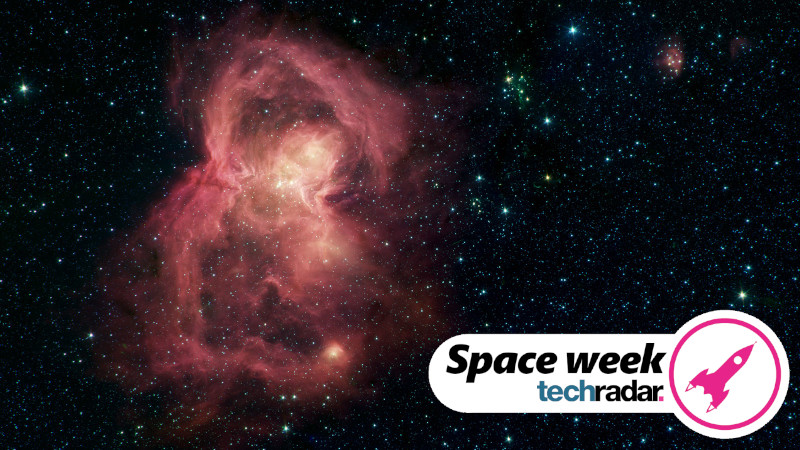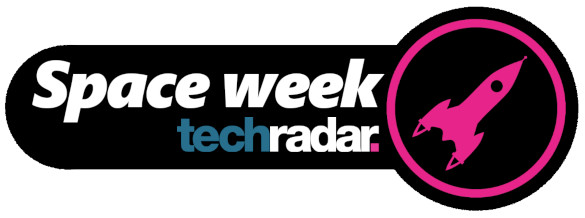
NASA's Spitzer Space Telescope has captured a stunning infrared image of a star nursery, which the space agency is calling a 'space butterfly'.
The butterfly is a nebula – a cloud of gas and dust. Some nebulae are formed from the material thrown out by a dying star, but it's believed that this particular one is a region where material is being drawn together by gravity, and can eventually coalesce into new stars.
- Are we getting closer to finding 'Planet Nine'?
- Buzz Aldrin on how you'll 'get your ass to Mars'
- How India plans to land on the moon in 2019
The butterfly's 'wings' are bubbles of gas ejected from a dense cluster of stars (which can be seen between the wings in the image). Sometimes radiation and winds from stars cause materials to gather like this, but they can also break up clumps of dust and prevent new stars from forming.
Infrared imaging
The butterfly picture is a composition of four images from the Spitzer Space Telescope's infrared array camera (IRAC) in different wavelengths of infrared light: 3.6, 4.5, 5.8 and 8.0 microns (shown as blue, green, orange and red).
"Organic molecules made of carbon and hydrogen, called polycyclic aromatic hydrocarbons (PAHs), are excited by interstellar radiation and become luminescent at wavelengths near 8.0 microns, giving the nebula its reddish features," NASA explains.
"Stars are brighter at the shorter wavelengths, giving them a blue tint. Some of the youngest stars are surrounded by dusty disks of material, which glow with a yellow or red hue."


Welcome to TechRadar's Space Week – a celebration of space exploration, throughout our solar system and beyond. Visit our Space Week hub to stay up to date with all the latest news and features.
Get daily insight, inspiration and deals in your inbox
Sign up for breaking news, reviews, opinion, top tech deals, and more.

Cat is TechRadar's Homes Editor specializing in kitchen appliances and smart home technology. She's been a tech journalist for 15 years, having worked on print magazines including PC Plus and PC Format, and is a Speciality Coffee Association (SCA) certified barista. Whether you want to invest in some smart lights or pick up a new espresso machine, she's the right person to help.